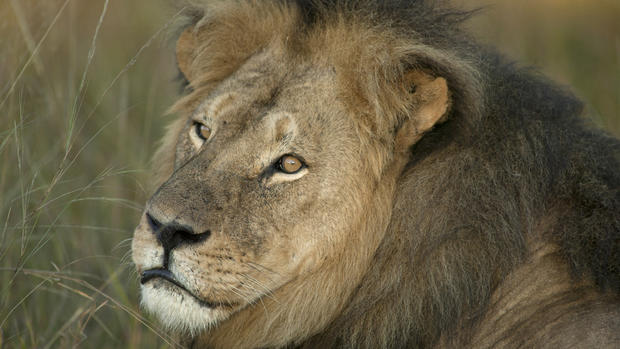Rep. for dentist who killed lion reaches out to U.S. Fish and Wildlife Service
U.S. Fish and Wildlife Service was contacted by a representative of Dr. Walter Palmer, the American dentist who killed a protected lion while on a guided hunt in Zimbabwe, according to Vanessa C. Kauffman spokeswoman from the Division of Public Affairs for the U.S. Fish and Wildlife Service.
"The Service's investigation is ongoing and appreciates that Dr. Palmer's representative voluntarily reached out to the Service," said Kauffman in a statement.
The Service then confirmed the late Thursday evening contact again in a Tweet.
Earlier Thursday the law enforcement arm of the U.S. Fish and Wildlife Service said it was trying to reach the Minnesota dentist. Fish and Wildlife Law Enforcement Deputy Chief Edward Grace re-iterated that the agency is investigating circumstances surrounding the death of a beloved lion, named Cecil.
Grace said multiple efforts to contact Palmer were unsuccessful and "we ask that Dr. Palmer or his representative contact us immediately." It is unclear what the communication was between the agency and Palmer's representative late Thursday evening.
Palmer hasn't returned emails from The Associated Press. His office voicemail isn't accepting messages and other listed phone numbers have busy signals.
Zimbabwe announced Friday that it would seek the extradition of Palmer to hold him "accountable" for killing a famous lion.
"Unfortunately it was too late to apprehend the foreign poacher as he had already absconded to his country of origin," a Zimbabwean government minister said Friday, adding that authorities there were "appealing to the responsible authorities for his extradition to Zimbabwe so that he be made accountable."
Zimbabwean environment minister Oppah Muchinguri said Palmer was accused of financing an illegal hunt to kill Cecil.
"Police should take the first step to approach the prosecutor general who will approach the Americans. The processes have already started," Muchinguri said at a news conference Friday.
According to Zimbabwe authorities, Palmer paid wildlife guides a possible $55,000 to help lure and kill the lion.
On Tuesday, Palmer released a statement saying that to his knowledge, "everything about this trip was legal and properly handled and conducted."
"I had no idea that the lion I took was a known, local favorite, was collared and part of a study until the end of the hunt. I relied on the expertise of my local professional guides to ensure a legal hunt," he said. "I deeply regret that my pursuit of an activity I love and practice responsibly and legally resulted in the taking of this lion."
Backlash from the hunting trip has shut down Palmer's practice in Minnesota.
On Wednesday, demonstrators gathered outside Palmer's office to protest the lion's killing. "Extradite Palmer! Extradite Palmer!" the angry protestors chanted. "He killed Cecil just because he wanted some skin and a head? That's unreasonable," said a 10-year-old protestor.
But some believe the outrage toward him has gone too far.
CBS News correspondent Vinita Nair reports Palmer has been hounded online and off -- with some people calling for his death. His actions have unleashed anger that seems to cut across all demographic groups. Even fellow hunters are keeping their distance.
His personal information has been released on social media, his dental practice shuttered, ravaged in on-line reviews and its website shut down, and now over 150,000 people have petitioned the White House calling for his extradition.
Nick Pinizzotto, CEO of pro-hunting group Sportsmen's Alliance, is troubled by the reaction.
"You see many people putting the lives of human beings behind the lives of animals, and that's a scary proposition for anybody," Pinizzotto said.
He said Palmer's explanation -- that local guides told him the hunt was legal -- seemed plausible.
"You do have to put your trust in these people that are there to get you to the right locations and you have to trust them certainly to guide you towards the animals safely," Pinizzotto said.
